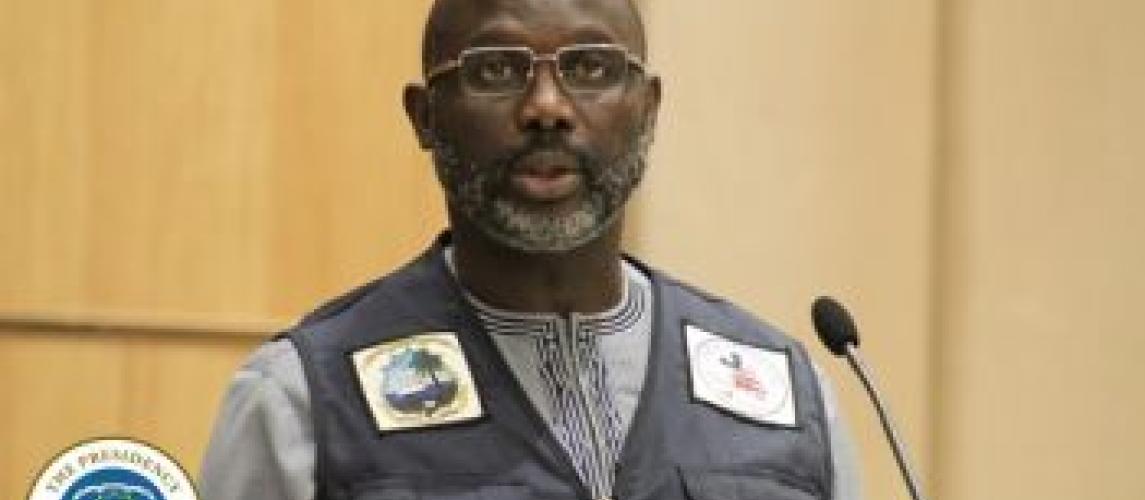
“Census Impacts Service Delivery at Grassroots Level,†President Weah Says as He Launches NPHC 2021
(Monrovia, Liberia): The President of the Republic, Dr. George Manneh Weah, has underscored the importance of national census, stressing that it directly impacts socioeconomic service delivery for citizens at the grassroots level.
Launching the National Population and Housing Census (NPHC) 2021 at the Ministerial Complex today, September 25, 2020, the Liberian Leader noted that statistics are important for planning and implementing development programs.
He added: “If you cannot measure accurately then you will not be able to manage the fair distribution of resources and delivery of services.”
“To address poverty effectively we must use targeted interventions that can be measured, and consult the people about their own development,” the President said. “It is therefore crucial that we mobilize the entire population to come forward and be counted, so that the results of Census 2021 can be used as a tool to improve service delivery.”
After the census, the President said, “we will have accurate data for the formulation of policy as well as implementation, monitoring and evaluation. The results from the census will provide us with a unique opportunity to realign our development strategies, policies and programs.”
In Liberia, the conduct of a census is guided by a constitutional provision that mandates the Executive Branch of Government to undertake the exercise.
The Chief Executive asserted that since it is not every government that could conduct a census, the NPHC will be a part of his legacy to the people and country.
“In addition to fulfilling this crucial constitutional requirement, the crux of our commitment on this issue is to ensure that development is equitable and in the public interest”, he said and urged citizens to fully cooperate with the exercise as it is for the general good of all.
The President said to support a nation’s development efforts, timely, relevant, sufficient and reliable data-sets are required, and the major foundation of this is the census.
“A census is usually the largest peacetime undertaking of a government. Because it is very involving and costly, a census is normally conducted only once every 10 years, but its products and tools could be used for over a decade.”
He acknowledged that undertaking such a huge national exercise needs a considerable amount of technical, financial and logistical resources.
“At this time of our development, with a pandemic looming large, Government cannot provide all the necessary inputs. But we have tried to make the census program happen by doing whatever we can to facilitate the implementation process,” Dr. Weah indicated.
He said in May 2019, his Government pledged US$3 million towards the census budget and provided US$700 thousand plus L$48 million as seed money to set up a Census Basket Fund to be managed by United Nations Population Fund (UNPF).
“In support of these efforts,” the President said further, “we received further contributions to our Census Basket Fund from several of our international partners.
He thanked the Government and People of Sweden, through their Embassy near Monrovia, for making the first contribution and remaining the highest contributor to the census budget by a US$7.8 million contribution.
President Weah observed that Census information has a direct impact on service delivery for people at the grassroots level, stressing “because statistics are important for planning and implementing development programs.”
President Weah indicated that it would be very difficult to manage the fair distribution of resources and delivery of services if people cannot measure accurately, adding also that measurable targeted interventions including consultation of the people about their development are needed in order to address poverty effectively.
“It is therefore crucial that we mobilize the entire population to come forward and be counted, so that the results of Census 2021 can be used as a tool to improve service delivery.”
He said the launch of the 2021 Census is a key milestone achievement in the government’s development aspiration, which he indicated would enable government, through the Liberia Institute of Statistics and Geo-Information Services (LISGIS), reach out to each and every household and count the people throughout Liberia.
“This will make us know how many people are in the country, how many are women, men, children, young people and old people; where do they live; how well are they living; how many are educated, and what do they do for a living, etc. This will enable government to plan well and deliver services to our people wherever they are,” President Weah stated.
He said the goals of the NPHC was in support of CDC Government shared national development aspirations captured in its formal national development framework, the Pro-Poor Agenda for Prosperity and Development (PAPD) intended to guide its drive towards growth, development and prosperity.
President Weah intoned that the PAPD anchors the government’s national development agenda on the foundations of the United Nations Sustainable Development Goals.
“It puts the Liberian people at the center of all development processes and helps us to ‘reach the furthest behind first’ and ‘leave no one behind’ as the national development processes ensue.”
The President informed partners that Government cannot provide all the necessary inputs especially at this time amid looming pandemic, noting that the government has tried and is doing whatever it can to facilitate the implementation process.
